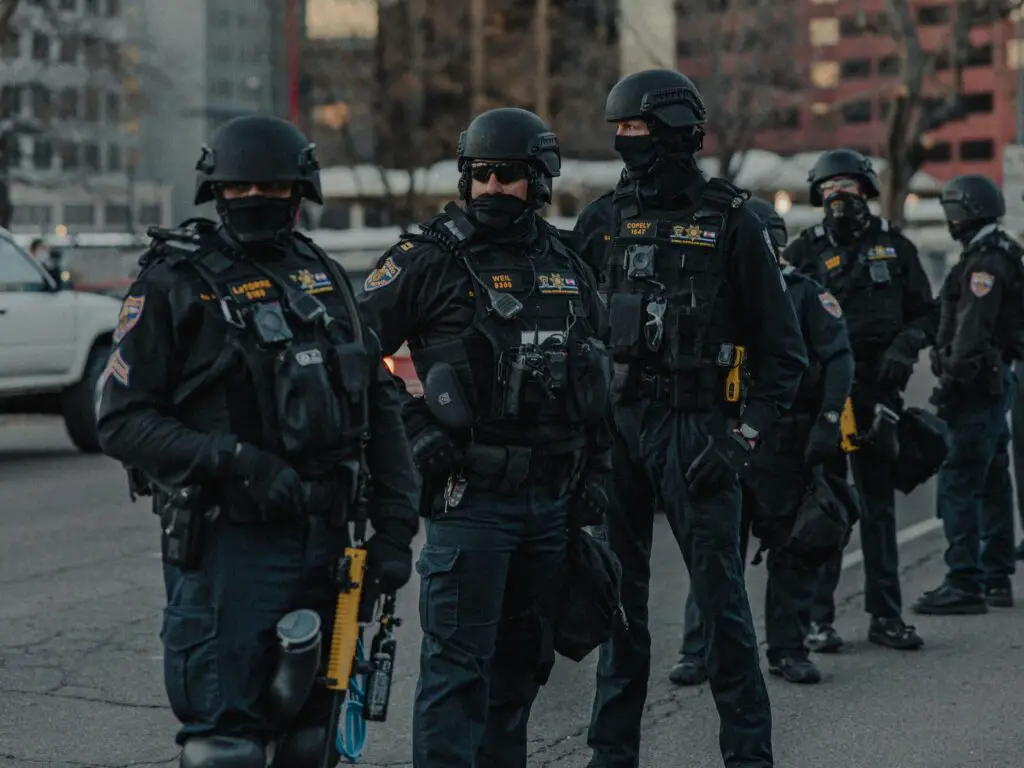Related Posts
Unfolding in the ever-expanding social universe, a video featuring Attorney Ugo Lord’s analysis of a disturbing incident has captured the attention of millions. It revolves around a distressing event where a SWAT team raided an Airbnb property when they had a warrant, causing a massive upheaval in the life of the property owner, Tara Van Sichem.
The Devastation Revealed
Van Sichem, shocked and distressed, detailed the extent of the damage in her video. Smashed windows, removed smoke detectors, and her home littered with shards of broken glass – the aftermath of the police action was nothing short of a nightmare.
“Smoke detectors were removed from the ceiling so they could smoke in there,” she added.
The Regina police had given a pre-emptive call, informing her about their warrant and the possibility of damages, but nothing could have prepared her for the horror that unfolded. Illegal items, including drugs, cash, and weapons, were retrieved from the property, turning the supposed safe haven of an Airbnb rental into a crime scene.
“So again, that brings us back to AirBnB hopefully covering it.” as she hoped.
Ugo Lord’s Legal Perspective
Amid the chaos and confusion, Attorney Ugo Lord’s response video on TikTok brought a much-needed legal perspective interpreting U.S. law for this Canadian event. In his calm and composed demeanor, Lord explained a harsh reality of the U.S. legal system – the police are not liable for damages during a valid search, even if the operation results in substantial property damage.
“If the police conduct an active search of a property and completely destroy your property in the process of that valid search, then the police are not liable for the damages that they caused to the home.”
According to Lord, the property’s status as a rental doesn’t alter the core legal implications. He also stated, “Airbnb is not liable for either the host or the guest.”
However, there might be a glimmer of hope for the devastated host as Airbnb’s insurance policies could provide coverage for such damages, thus offering some financial respite.
“It makes the homeowner liable for all the damages that happened next,” Lord concluded.
This revelation was a tough pill for many viewers, but Lord’s statement has a solid bedrock of legal precedents.
Legal Interpretations Of The Airbnb Scenario

Lord’s explanation is in line with specific legal research. In particular, the law in the United States generally does not hold the police liable for damages caused during a valid property search.
This principle is based on the conception that law enforcers act for the public good. However, anything damaged in the process thus done is deemed as an unavoidable side effect of enforcing the law. This does not constitute a “taking” as determined by the Constitution’s Takings Clause, which would require monetary compensation. This involves the injured party showing what they believe is unwarranted action from a governmental unit.
This principle was in the case of Baker v. City of McKinney (2023), where the court ruled that the Takings Clause does not require compensation for damaged or destroyed property when it was necessary to prevent imminent harm to persons. This ruling sets a precedent that applies to the situation at hand.
In the case of the Airbnb property, the owner cannot sue Airbnb for the damages as the platform is not liable for either the host or the guest. However, Airbnb’s insurance policies might cover the damages, providing some relief to the property owner.
The Final Verdict
The occurrence at Van Sichem’s home was unpleasant and disturbing. Nevertheless, it strongly indicates the intricate nature and meshing of insulations guiding property possession rights, police obligations, and collateral harms owing to law enforcement actions.
Lord’s reaction video and other issues at hand demonstrate that the intricacies of these laws do not always fit in with our intuitive sense of justice policies. But, it descriptively highlights the significance of understanding how to respond to our choice landscape.

